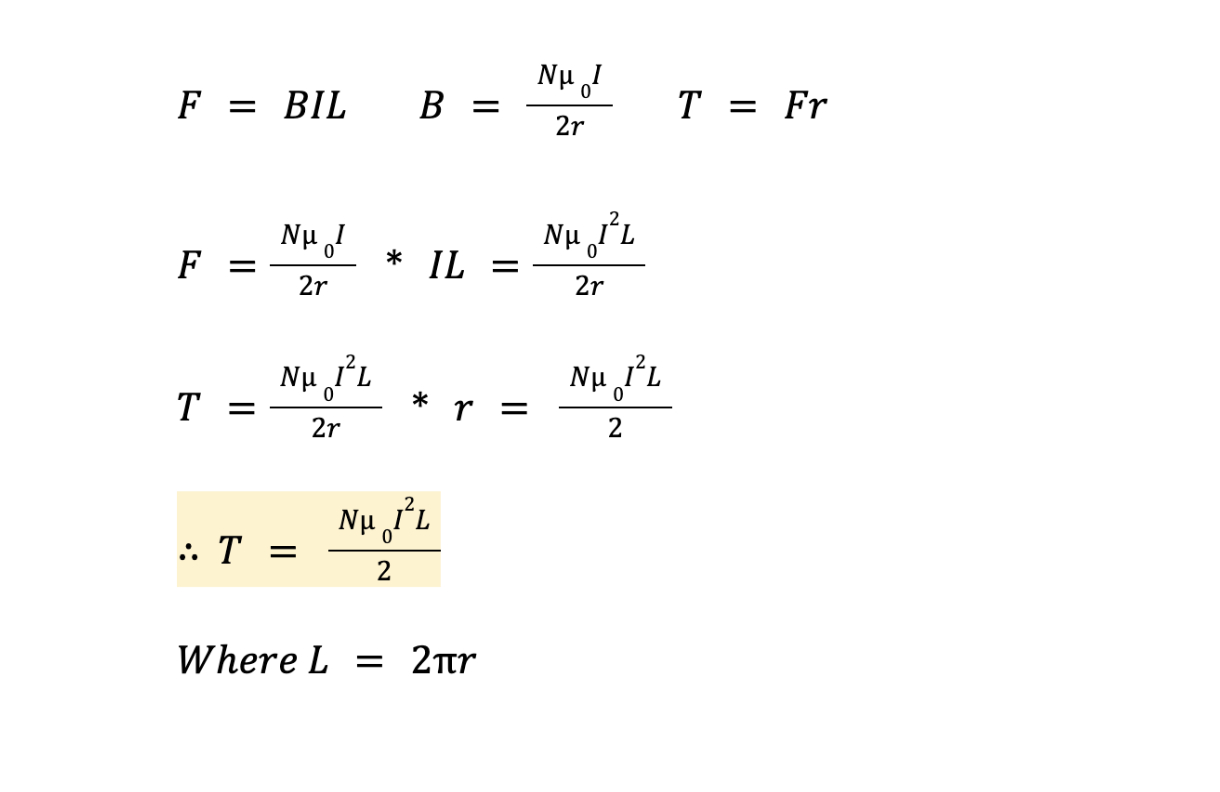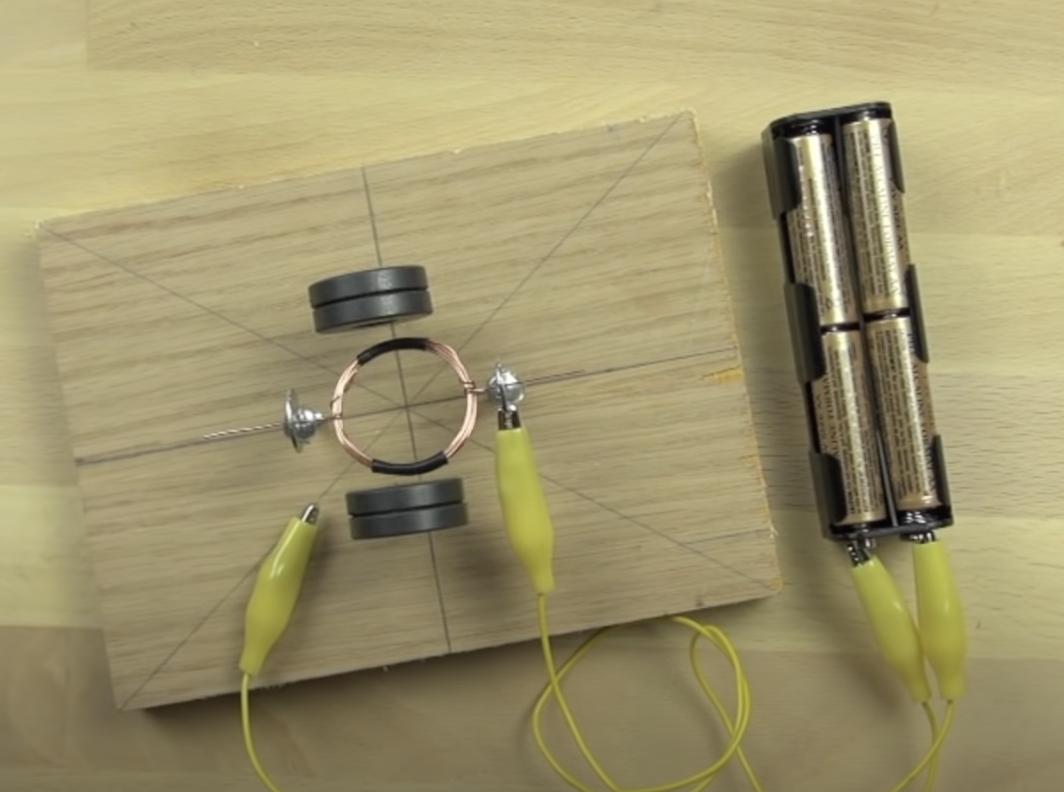I created a simple electric motor following Khan Academy's tutorial, and now I am trying to figure out how I can find the torque from it (which should be quite small).
Here is an image of the setup from Khan Academy. I made something pretty similar.
Since I have yet to begin post-secondary education, I want to figure the torque of a simple electric motor (something similar to a Johnson motor) without using any math that requires calculus and beyond. I want to know if this is possible?
I do not know the magnetic field of my simple motor so I found this paper and I am using this formula that I found from it. The formula is also mentioned here, but the derivation seems to require integrals, which I have yet to learn.
I am trying to combine this equation with another I found online for finding the force of a motor which is
F = ILB (once again from Khan Academy)
whilst using
T = F (force) * r (radius), (from a textbook on motors, so I think I can use it)
To do a substitution to derive an equation for torque, listed below:

If the formula works, then I believe that I can find the torque of the simple motor as I know the current of my motor, the voltage, the radius (and hence the length, using 2πr, I believe? Please correct me if I'm wrong), and the number of loops (N).
I got the information about the voltage and the current from a DC supply box, so I'm pretty sure its the right information, right?
Please let me know if there is something incorrect in my logic.



